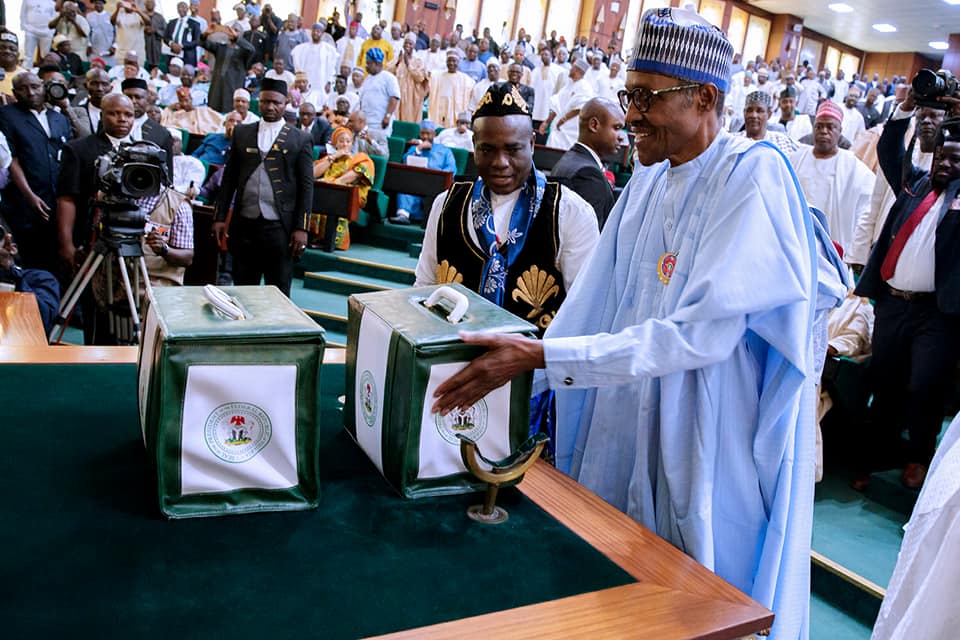Some economists in Ibadan, the Oyo state capital, have raised fear concerning the implementation of the 2019 budget against the backdrop of unstable price of crude in the international market.
Messrs Adetunji Adepeju and Phil Aragbada expressed the fear in separate interviews with the News Agency of Nigeria (NAN) in Ibadan on Friday, adding that the situation was compounded by the reduction in OPEC production quota.
They commended the Federal Government’s policy on diversification, saying that the measure would strengthen the nation’s economy and make it less dependent on oil.
They however urged Nigerians to be patient with the administration, saying that it would take a while for the economic blueprint of the government to begin to produce result.
Adepeju charged Ministries, Departments and Agencies and parastatal organisations to work assiduously in ensuring full implementation of the budget for the good of all.
He said: “The unstable price of crude in the international market is a major factor in the implementation of the 2019 budget.
“We should also bear in mind that OPEC has reduced the production quota of crude oil.
“We will not be able to meet the target of 2.3 barrels per day (bpd), even though the production level has been about 1.9 bpd due to the activities of the Niger Delta.
“This has caused instability and unless our refineries start working, we will not make some gains.
“Again, the burden on dollars for importing refined petroleum products will be less if we locally produce what we consume.”
He also expressed concern that nothing much could be achieved in terms of capital projects, given that more than 70 per cent of the budget went to recurrent expenditure.
“The fact that about 52 per cent of the recurrent expenditure goes to salaries and emoluments is not a good omen for the next fiscal year.
“What should have been done instead is that our capital expenditure should be more than the recurrent expenditure or at most the two should be at par,” Adepeju said.
He hoped that a lot might be achieved in the power, housing and transportation sectors.
He said, “It is good that the capital expenditure is focused on developing transportation, power and housing.
“If these are done and fully implemented as planned in the budget, it will be a good foundation for development in future.”
He said that it was also gratifying that President Muhammadu Buhari said that the proposed new minimum wage was captured in the budget.
Also, Aragbada said that to reposition the nation’s economy required a lot of sacrifice from all Nigerians.
“Nigerians would have to suffer a while to enjoy the gains later,” he said.
According to him, “the 2019 appropriation bill is an ambitious one not a budget of hope.
“If you read the details, it was based on 50 dollars per barrel,” he said, adding that the fall in the price of crude and production quota would negatively affect the budget implementation.
He said, “We have a combination of two tragedies: reduction in oil price and oil production quota and both situations will affect the implementation of the budget.”
On oil subsidy, he said that the policy was politically expedient but not economically so, adding that the policy favoured mainly the elite.
The economist said that it was advisable for the nation to borrow to finance infrastructure rather than subsidy.
He opined that building infrastructure would help to create employment and also boost disposable income and the economy.
“But when money is borrowed for subsidy, there would be no gain for us economically, just political satisfaction,“ Aragbada said. (NAN)



Leave a Reply